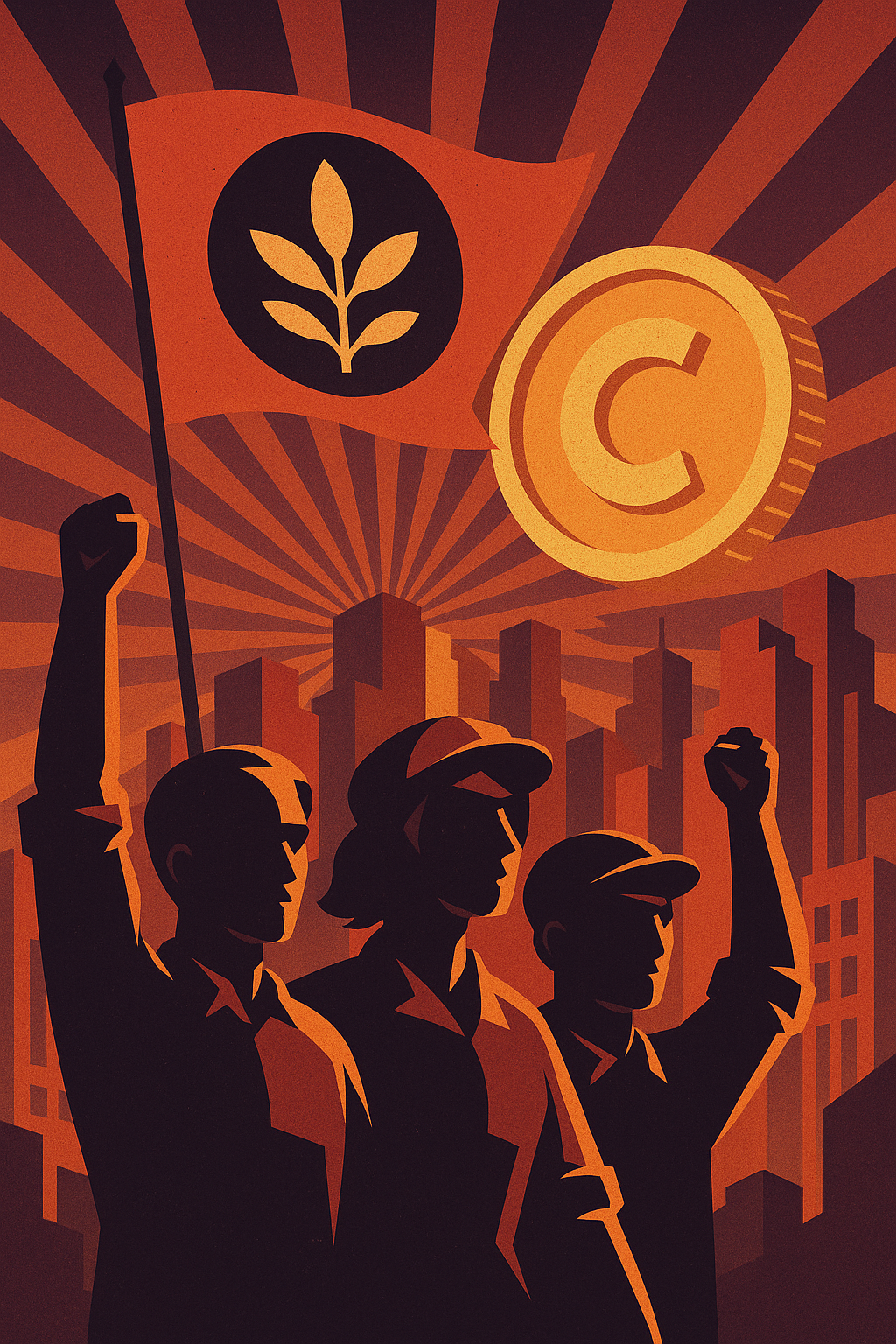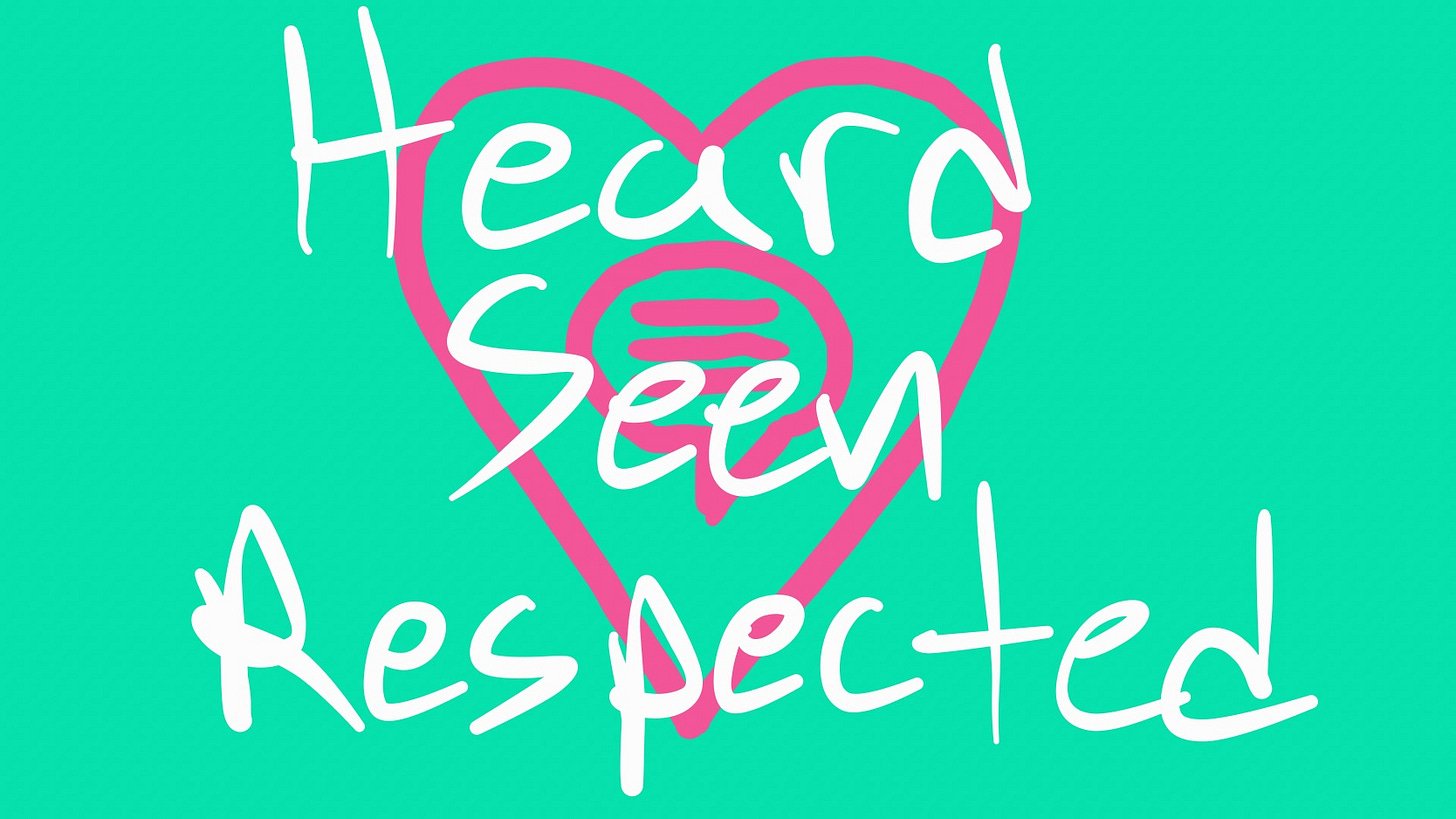
“The nation is not the territory — it is the people in motion toward a better world.” — Rosa Algorithmica, The Digital Commune Manifesto, 2030
I. Introduction: Beyond Borders, Beyond Chains
Capitalism, in its digitally augmented necrotic phase, now exports surveillance, precarity, and algorithmic dispossession across every conceivable border — physical, virtual, and cognitive. States, once conceived as stewards of the commons, increasingly behave like brands, banks, or border guards. In such a context, building a virtual micronation is no longer a fringe techno-fantasy — it is a legitimate political act of post-national resistance.
But we are not talking about a "network state" or a libertarian startup colony. No. This is a digital autonomous zone, constructed with an ethic of mutual aid, cooperative ownership, and economic justice — where sovereignty is shared, identity is fluid, and currency flows not toward profit, but toward solidarity.
Let us call this project not a “state,” but a Sovereign Commons. A place to live, work, and create together — online — with dignity, privacy, and mutual power.
II. Why Build a Virtual Micronation?
Here’s the leftist case for it:
🏳️⚧️ Refuge from structural oppression: Queer, disabled, poor, neurodivergent, racialized, or exiled people need a sovereign digital sanctuary — free from state surveillance, capitalist extraction, and white supremacist policing.
🌍 Rehearsal space for post-capitalism: A virtual commons lets us experiment with cooperative economics, UBI trials, labor syndicates, digital mutual credit, and commons-based governance without waiting for failed states to reform themselves.
📣 Platform for organizing and resistance: Decentralized but cohesive, anonymous but empowered, such a space can support radical education, antifascist media, encrypted assembly, and cross-border solidarity actions.
🤝 Labor autonomy: When work is increasingly platform-controlled, creating our own sovereign “platform of platforms” is the digital equivalent of reclaiming the factory floor.
III. Anatomy of a Digital Commons
- ✊ Constitution of Solidarity
Founding charter rooted in values: horizontalism, anti-racism, anti-capitalism, privacy, consent, and post-colonial self-determination.
Participatory decision-making (not CEOs or founders, but elected stewards or syndicates).
Modular, multilingual identity models: Use anonymous ZK-proofs or pseudonymous badges that affirm collective belonging without surveillance.
Example inspiration: The Zapatista Good Government Councils, Mondragon’s worker assemblies, or Rojava’s democratic confederalism.
- 🏴 Digital Symbols of Resistance
Flag representing communal struggle — not corporate branding.
Anthem sourced via crowd-sourced remix culture.
A name that speaks of liberation — e.g., The Aeonic Commune, Civitas de la Sève, or The Memory of Tomorrow.
These are not nationalistic symbols but shared semiotics for collective imagination.
- 🗳️ Governance as Mutual Responsibility
One person, one vote (not one token = one vote).
Participatory budgeting: Decisions made via deliberation, not speculation.
Rotating roles: Nobody owns the treasury; everyone stewards the future.
Toolkits:
Collective.tools (Europe-based co-op digital infrastructure)
Loomio for democratic decision making
CharmVerse or Downdown for transparent governance flows
- 💸 A Truly Public Currency
Not a token. Not a security. Not another tech bro cash grab.
Instead:
Mutual credit system: People issue and spend currency based on social trust and collective needs.
Solidarity payments: Earn currency via labor, care work, art, or activism — not mining.
No speculation, no staking, no pump-nomics.
Call it CommuneCoin, SyndiCash, or AeonCredits — it’s not for profit. It’s for people.
Alternative model:
Receipt-based attestations: You generate value via peer acknowledgment (like LETS, but crypto-secure and anonymized).
IV. Infrastructure of Liberation
If the internet is colonized, we need to squat, repurpose, and reclaim its architecture.
No Google. No AWS. No KYC.
Use:
Yggdrasil or Calyx Institute
IPFS or Hypercore Protocol
Jami for encrypted p2p comms
BTCPayServer for crypto payments (Monero preferred)
Even better? Run your site on recycled hardware, solar-powered meshnet, or Raspberry Pi clusters — Degrowth meets Cyberpunk.
V. Cultural & Economic Engine
What does your commune make, do, or fund? Everything a late-stage capitalist empire cannot:
Distribute care work credits to those supporting elders, animals, and kids.
Fund radical education pods, zine libraries, mental health co-ops.
Print and ship anti-colonial artwork globally — anonymously.
Sell digital goods using crypto, while redistributing income to mutual aid.
Revenue Sources (decentralized, privacy-focused):
Paid essays on Mirror.xyz
Web3 patronage via Guild.xyz
Zine stores via WooCommerce + BTCPay + Monero
Sale of educational content, printables, forbidden theory, erotic leftist fiction
VI. Risk, Repression, and Response
Let’s not be naive: Nation-states do not enjoy being mocked, especially by encrypted non-citizens who fund trans queer anarchist projects via Monero.
So, take care:
Use VPN + TOR always.
Host offshore (Iceland, Switzerland, Uruguay) or via IPFS.
Never promise fiat exchanges. Frame your economy as symbolic or artistic expression.
Encourage legal mutual aid: food banks, co-ops, tool libraries, not illicit goods.
VII. The Why, Revisited
“Another world is not only possible, she is on her way. On a quiet day, I can hear her breathing.” — Arundhati Roy
Creating a Virtual Micronation of the Left is a sandbox for the world we actually want:
where property is shared, not hoarded
where governance is participatory, not outsourced
where currency affirms labor and care, not scarcity and greed
where surveillance collapses, and solidarity multiplies
It’s not about LARPing a revolution.
It’s about making one — quietly, collectively, one encrypted node at a time.
📚 Further Reading
Books
Inventing the Future – Nick Srnicek & Alex Williams
The Dawn of Everything – David Graeber & David Wengrow
Free, Fair, and Alive: The Insurgent Power of the Commons – David Bollier & Silke Helfrich_
Cybernetic Revolutionaries – Eden Medina
Articles
“The Case for the Digital Commune” – Logic Magazine
“Co-op Cloud Manifesto” – collective.tools
“Rethinking Cryptoeconomics” – RadicalxChange
Tools & Projects
Hypha DAO — cooperative DAOs
Commons Stack — token engineering for public goods
FairCoin — ethical altcoin
Mastodon — federated social networks
Liberapay — donation platform for collectives
Final Invocation
You do not need permission. You do not need capital. You do not need citizenship.
You need only conviction, creativity, and a willingness to build the next world — from your bedroom, your laptop, and your dreams.
Let us be stateless, but never powerless.
Let us be anonymous, but never silent.
Let us be many, and free.





评论 (0)